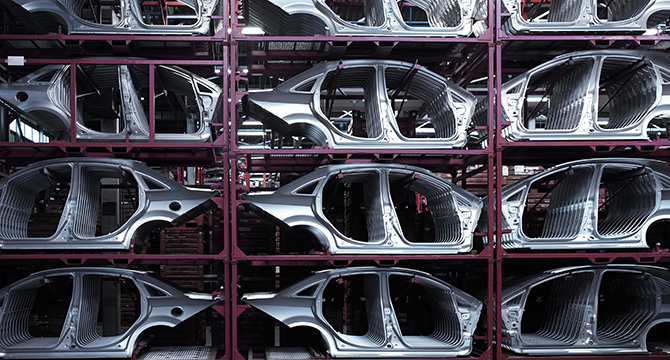New Exclusions Process Gives Automotive Companies the Possibility of Exemption from Section 232 Steel and Aluminum Tariffs

On March 23rd, automotive companies that rely on imported steel and aluminum were confronted with new special tariffs of 25 percent on all imports of steel and tariffs of ten percent on all imports of aluminum, with temporary exclusions for Argentina, Australia, Brazil, Canada, Mexico, the member countries of the European Union, and South Korea. Even automotive companies that solely or largely source from domestic steel companies have discovered that steel prices were sharply rising to reflect the new curbs on imports.
These duties have created a great deal of supply chain uncertainty for automotive-sector companies. To help address concerns, the Bureau of Industry and Security (BIS) has announced procedures whereby U.S. consumers of steel products can seek exclusions where: (1) steel and aluminum products are not available domestically; (2) domestic production is insufficient to satisfy domestic consumption; or (3) specific national security needs otherwise require an exemption.
The announced exclusion process consists of two parts: (1) a Federal Register notice explaining the process; and (2) an exclusions submission forms, one tailored for steel and another for aluminum. The exclusions process is limited to “parties in the United States,” i.e., “[o]nly individuals or organizations using [steel or aluminum] articles … in business activities … in the United States may submit exclusion requests.” The rationale is that consumers are the entities that “contribute to [the] economic welfare through business activities in the United States.” Foreign steel and aluminum makers, and other entities that do not consume these products may not file because “[a]llowing individuals or organizations not engaged in business activities in the United States to seek exclusion requests could undermine the adjustment of imports that the President determined was necessary to address the threat to national security posed by the current import” of steel and aluminum.
Automotive companies that purchase products for their U.S. operations most certainly qualify. Unlike with antidumping and countervailing duty orders, where the foreign supplier needs to take the lead, for section 232 it is the consumer that needs to be pro-active in requesting an exclusion. Because of the way the exclusion is worded, the automotive-sector manufacturers – not the supplying steel companies – will need to take the lead in requesting exclusions.
Exclusion requests are granted, “as appropriate,” for the “import of goods not currently available in the United States in a sufficient quantity or satisfactory quality, or for other specific national security reasons.” No other basis exists granting an exclusion request. The first two categories are intended to encompass situations where the U.S. industry cannot benefit from an exclusion. The last one is intended to deal with situations where the consumer manufactures goods that have a national security impact (e.g., defense articles or critical infrastructure).
The information to be submitted primarily is found in a form. These forms and supplements are “primarily focused on the availability of the product in the United States,” with information about availability of the product abroad only being tangentially important to the extent it illuminates U.S. national security considerations. The submission must “clearly identify, and provide support for,” the argument that the “article is not produced in the United States in a sufficient and reasonably available amount, is not produced in the United States in a satisfactory quality, or for a specific national security consideration.” No more than 25 pages of support can be provided, both by the initial request and for any rebuttal.
BIS has not announced the standard it will use to review submissions. It is highly likely, however, that exclusions will only be granted based upon strong evidence supporting the claim that the product is not available domestically/available in sufficient quantities or that there is a specific nationals security rationale for a claimed exemption. Companies that are providing exclusion requests need to consider carefully what type of support they can submit to distinguish their submissions from the flood of other submissions. Strong support for any claimed need for an exemption will likely be the key to securing a favorable exclusion decision.
* * *
Full information regarding the impact of section 232 on automotive companies is available in a lengthy client alert on the impact of section 232 on automotive companies. Detailed information regarding the operation and best strategy for managing the section 232 exclusions process is found here.
This was a Publication of the Foley & Lardner LLP International Trade & National Security Practice and the Foley Automotive Industry Team.
The Foley & Lardner International Trade & National Security team, and the Automotive Industry Team, are closely monitoring developments in this area. Further information about the section 232 status and exclusions process is available by contacting the authors.
Click here for full details on the implications of the section 232 tariffs on the steel and aluminum markets in general. Click here for information specific to the automotive sector.



